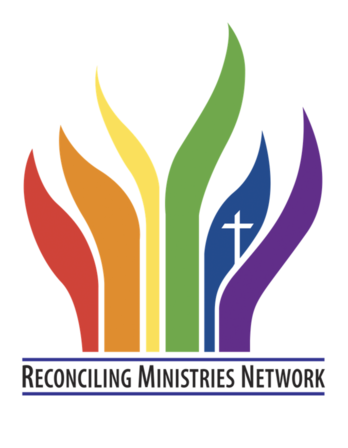Why single out LGBTQ persons? Why not just welcome everyone?
We do welcome everyone. But the Reconciling Congregation movement highlights the open discrimination which LGBTQ persons face in our church and society. In the United Methodist Church, LGBTQ persons are the only social group for whom participation in some aspects of general church life is barred by church law. At the same time, we know that there are other persons and groups in our society with whom our churches must be reconciled. That’s why we’ve adopted a welcoming statement that includes all persons “regardless of age, gender, race, class, ethnic background, mental or physical ability, or gender/sexual orientation.”
Why do we have to make a public statement?
Many churches and Christian leaders are public about their anti-gay actions and statements, so we feel that we should be just as public about being in ministry with gay, lesbian, bisexual, and transgender persons. The overwhelming perception within the LGBTQ community today is that they are not welcome in churches. We want our public statement to help overcome that perception. Remember Jesus’ statement about hiding your light under a bushel (Matt. 5:15)? We don’t want to keep quiet about this! Our status as a Reconciling Congregation is something we celebrate.���
Does being a Reconciling Congregation mean that we’re an all-gay church?
No, it means that we’re an “all kinds” church. At Christ UMC, you’ll find people across the spiritual, political, and social spectrum. Most of us are native English speakers, but some are not. Some of us are politically conservative while others are liberal. Most of us have European ancestors, but some of us don’t. Some of us understand the Bible in a fairly literal way, while others believe that the Bible is to be understood as an expression of the historical time and place it was written. Most of us are heterosexual, and some of us are lesbian, gay, bisexual, or transgendered. But in the end, we have this in common: we think that diversity is God’s good gift, and we celebrate it!���
Did our vote split our church? Is there conflict in the congregation over this issue?
Definitely not. We’re very proud of the fact that in our congregational vote, the overwhelming majority supported our reconciling statement. We’re even prouder that some of those who disagreed stuck around and are still part of the family – we think that a good old fashioned family disagreement is no reason to stop loving each other!���
Are other congregations or ministries in the Oregon-Idaho Conference also part of the Reconciling Congregations Movement?
Yes. There are over 38 United Methodist Communities that have identified themselves as Reconciling Congregations or Communities. Among these are Hillsboro UMC, Beaverton First UMC, Albany First UMC, Corvallis UMC, First UMC of Salem, and Portland First UMC. Other local churches exploring becoming Reconciling Congregations include: Epworth UMC, Fremont UMC, and Mountain Home UMC. Our Oregon-Idaho Conference declared itself to be a Reconciling Conference in 2004.
Does this mean that Christ UMC is openly breaking church law?
Being a reconciling congregation does not violate the United Methodist Book of Discipline (which is our “church law”). John Wesley, the founder of Methodism in the 1700s, said that Methodists “think and let think.” What he meant is that beyond our agreement on central aspects of Christian doctrine, Methodists can hold diverse opinions on all kinds of topics. One of the great things about Methodism is that each individual, and each pastor and church, is free to express our opinions about spiritual, social, political and economic issues. We recognize that whatever our differences, what binds us together as Christians is far more important than whatever might separate us.�
How can I find out more about this issue and Christ UMC’s position?
We’re glad you asked! Feel free to contact our pastor or the members of our Reconciling Ministries Group with further questions. You can catch us on a Sunday morning or email the church office, and we will be happy to talk with you.


